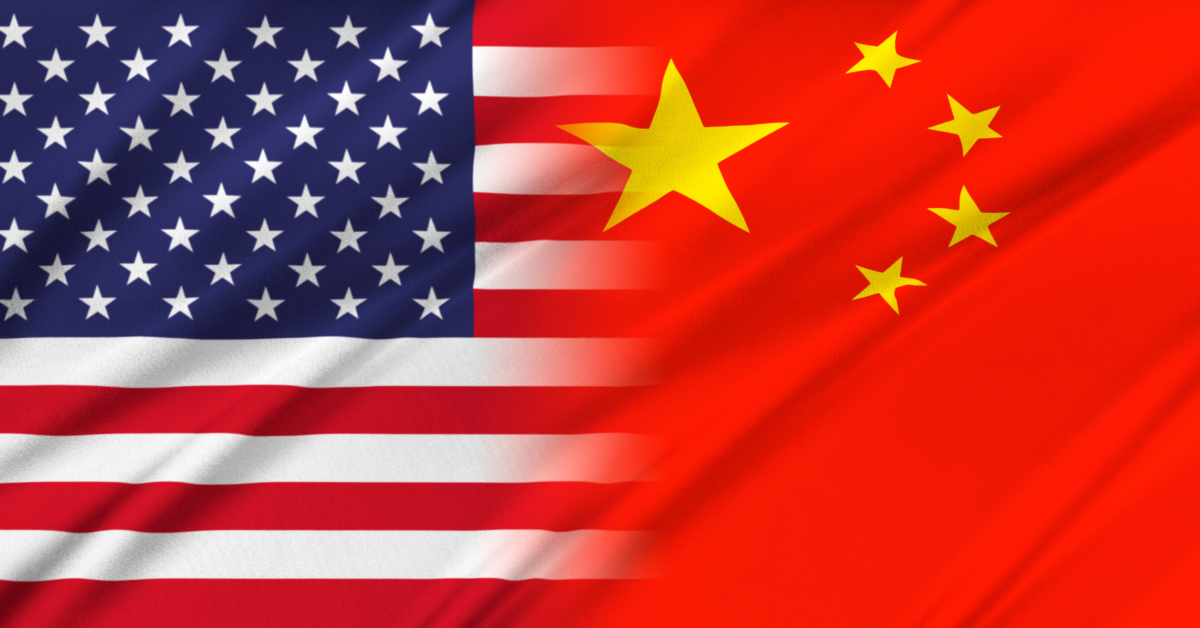China’s recent retaliatory tariffs and regulatory measures are poised to disrupt key sectors of the American economy. The latest actions include duties on U.S. exports such as energy products, industrial machinery, large vehicles, and agricultural goods, as well as regulatory probes targeting technology and consumer companies. Investors should closely monitor stocks with significant exposure to these measures.
Below are the key sectors and U.S. stocks likely to feel the greatest impact:
1. Energy Sector:
China has imposed a 15% duty on U.S. coal and liquefied natural gas (LNG), and a 10% duty on crude oil. These measures could reduce the competitiveness of U.S. energy exports and squeeze margins for companies that rely on overseas markets.
Affected Stocks
- Peabody Energy Corp (BTU):
As a major U.S. coal producer, Peabody Energy could see export volumes drop if its coal becomes 15% more expensive in the Chinese market. - Cheniere Energy Inc (LNG)
A leader in LNG exports, Cheniere Energy faces direct exposure to the 15% tariff, potentially leading to reduced demand or the need to renegotiate contract terms. - Exxon Mobil Corp (XOM)
With a portion of its crude oil destined for export, Exxon may experience margin pressures from the 10% tariff levied on its U.S. crude.
Investing is all about making informed decisions, and now you can do it for less. Get 70% off Stock Target Advisor and start optimizing your portfolio today. Grab your discount now!
2. Industrial and Agricultural Machinery:
Tariffs on agricultural machinery and related industrial products can raise production costs and disrupt supply chains. U.S. companies in this sector, which export heavy equipment to international markets, are particularly vulnerable.
Affected Stocks
- Caterpillar Inc (CAT)
A global leader in heavy machinery, Caterpillar is exposed to increased costs on machinery and components, potentially reducing its export competitiveness. - Deere & Co (DE)
Known for its agricultural equipment, Deere stands to be affected if tariffs increase the cost of key inputs or reduce demand in markets where it relies on cross-border supply chains.
3. Automotive Sector:
China’s retaliatory tariffs target large engine vehicles and pickup trucks, which could directly affect U.S. automakers that export these products. Higher prices may dampen demand in China, a market that, while relatively small for U.S. vehicles, remains important for brands seeking global growth.
Affected Stocks
- Ford Motor Co (F)
With a significant part of its lineup consisting of trucks and large vehicles, Ford could see reduced competitiveness and lower export volumes if tariffs push up consumer prices in China. - General Motors Company (GM)
GM’s offerings, such as large SUVs and pickups, may face similar headwinds, as the added duty makes U.S. made vehicles less attractive in a price sensitive market.
Read More: What Canadian Stocks Would Trump’s Tariffs Hit the Most?
4. Technology and Semiconductor Sector:
Beyond tariffs, China is using regulatory tools to pressure U.S. tech companies. Recent moves include antitrust investigations and export controls aimed at companies involved in critical technology, creating uncertainty for investors.
Affected Stocks
- Alphabet Inc (GOOGL)
Although Google’s core services are largely absent in China, an ongoing antitrust probe by Chinese regulators introduces uncertainty that could impact future market access and investor sentiment. - Nvidia Corporation (NVDA)
Nvidia is under scrutiny for potential anti, monopoly violations related to its advanced AI chip sales. The investigation adds regulatory risk at a time when U.S. export controls are already tightening. - Intel Corporation (INTC)
Similar regulatory headwinds could affect Intel, as any prolonged probe or additional export restrictions might dampen its ability to compete in a rapidly evolving technology landscape.
5. Consumer and Apparel Sector:
China’s use of its “unreliable entity” list to pressure U.S. companies adds another layer of risk, particularly for those in the apparel and consumer sectors. Being blacklisted can limit market access and complicate supply chain operations.
Affected Stock
- PVH Corp (PVH):
As the owner of major brands such as Calvin Klein and Tommy Hilfiger, PVH has been placed on China’s unreliable entity list due to alleged discriminatory practices.
This designation could restrict its ability to operate in one of the world’s largest consumer markets, drive up costs, and potentially erode future sales.
Ready to take your investments to the next level? For a limited time, get 70% off on Stock Target Advisor. Get started here!
6. Agricultural Sector:
China has imposed tariffs of up to 15% on major U.S. agricultural exports, including soybeans, wheat, meat, and cotton. These measures are expected to significantly impact U.S. farmers and agribusinesses that rely on the Chinese market.
Affected Stock
-
Archer Daniels Midland Company (ADM): As a major processor and exporter of soybeans and other agricultural products, ADM may face reduced demand and lower margins due to the new tariffs.?
-
Bunge Limited (BG): Similar to ADM, Bunge’s operations in processing and trading agricultural commodities could be adversely affected by decreased exports to China.
Impact and Outlook:
China’s retaliatory measures, combining targeted tariffs with regulatory actions, are likely to impose both immediate and longer-term challenges on U.S. exporters. Energy companies, heavy machinery manufacturers, automakers, and agricultural producers face direct cost increases that could reduce export volumes and profit margins.?
Investors should be mindful of these risks as supply chains adjust and negotiations between Washington and Beijing unfold. Diversification strategies or hedging against trade-related volatility may become increasingly important as the trade dispute evolves.
Muzzammil is a content writer at Stock Target Advisor. He has been writing stock news and analysis at Stock Target Advisor since 2023 and has worked in the financial domain in various roles since 2020. He has previously worked on an equity research firm that analyzed companies listed on the stock markets in the U.S. and Canada and performed fundamental and qualitative analyses of management strength, business strategy, and product/services forecast as indicated by major brokers covering the stock.






































